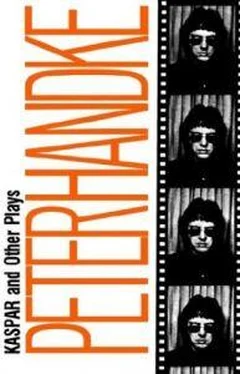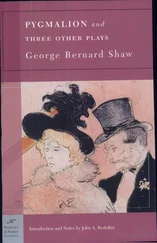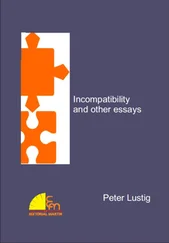Peter Handke - Kaspar and Other Plays
Здесь есть возможность читать онлайн «Peter Handke - Kaspar and Other Plays» весь текст электронной книги совершенно бесплатно (целиком полную версию без сокращений). В некоторых случаях можно слушать аудио, скачать через торрент в формате fb2 и присутствует краткое содержание. Год выпуска: 1970, Издательство: Farrar Straus Giroux, Жанр: Драматургия, на английском языке. Описание произведения, (предисловие) а так же отзывы посетителей доступны на портале библиотеки ЛибКат.
- Название:Kaspar and Other Plays
- Автор:
- Издательство:Farrar Straus Giroux
- Жанр:
- Год:1970
- ISBN:нет данных
- Рейтинг книги:4 / 5. Голосов: 2
-
Избранное:Добавить в избранное
- Отзывы:
-
Ваша оценка:
- 80
- 1
- 2
- 3
- 4
- 5
Kaspar and Other Plays: краткое содержание, описание и аннотация
Предлагаем к чтению аннотацию, описание, краткое содержание или предисловие (зависит от того, что написал сам автор книги «Kaspar and Other Plays»). Если вы не нашли необходимую информацию о книге — напишите в комментариях, мы постараемся отыскать её.
Waiting for Godot
In
and
, one-character "speak-ins," Handke further explores the relationship between public performance and personal identity, forcing us to reconsider our sense of who we are and what we know.
Kaspar and Other Plays — читать онлайн бесплатно полную книгу (весь текст) целиком
Ниже представлен текст книги, разбитый по страницам. Система сохранения места последней прочитанной страницы, позволяет с удобством читать онлайн бесплатно книгу «Kaspar and Other Plays», без необходимости каждый раз заново искать на чём Вы остановились. Поставьте закладку, и сможете в любой момент перейти на страницу, на которой закончили чтение.
Интервал:
Закладка:
Because we speak to you, you can become conscious of yourself. Because we speak to you, your self-awareness increases. You become aware that you are sitting. You become aware that you are sitting in a theater. You become aware of the size of your limbs. You become aware of how your limbs are situated. You become aware of your fingers. You become aware of your tongue. You become aware of your throat. You become aware how heavy your head is. You become aware of your sex organs. You become aware of batting your eyelids. You become aware of the muscles with which you swallow. You become aware of the flow of your saliva. You become aware of the beating of your heart. You become aware of raising your eyebrows. You become aware of a prickling sensation on your scalp. You become aware of the impulse to scratch yourself. You become aware of sweating under your armpits. You become aware of your sweaty hands. You become aware of your parched hands. You become aware of the air you are inhaling and exhaling through your mouth and nose. You become aware of our words entering your ears. You acquire presence of mind.
Try not to blink your eyelids. Try not to swallow any more. Try not to move your tongue. Try not to hear anything. Try not to smell anything. Try not to salivate. Try not to sweat. Try not to shift in your seat. Try not to breathe.
Why, you are breathing. Why, you are salivating. Why, you are listening. Why, you are smelling. Why, you are swallowing. Why, you are blinking your eyelids. Why, you are belching. Why, you are sweating. Why, how terribly self-conscious you are.
Don’t blink. Don’t salivate. Don’t bat your eyelashes. Don’t inhale. Don’t exhale. Don’t shift in your seat. Don’t listen to us. Don’t smell. Don’t swallow. Hold your breath.
Swallow. Salivate. Blink. Listen. Breathe.
You are now aware of your presence. You know that it is your time that you are spending here. You are the topic. You tie the knot. You untie the knot. You are the center. You are the occasion. You are the reasons why. You provide the initial impulse. You provide us with words here. You are the playmakers and the counterplotters. You are the youthful comedians. You are the youthful lovers, you are the ingenues, you are the sentimentalists. You are the stars, you are the character actors, you are the bon vivants and the heroes. You are the heroes and the villains of this piece.
Before you came here, you made certain preparations. You came here with certain preconceptions. You went to the theater. You prepared yourself to go to the theater. You had certain expectations. Your thoughts were one step ahead of time. You imagined something. You prepared yourself for something. You prepared yourself to partake in something. You prepared yourself to be seated, to sit on the rented seat and to attend something. Perhaps you had heard of this piece. So you made preparations, you prepared yourself for something. You let events come toward you. You were prepared to sit and have something shown to you.
The rhythm you breathed in was different from ours. You went about dressing yourself in a different manner. You got started in a different way. You approached this location from different directions. You used the public transportation system. You came on foot. You came by cab. You used your own means of transportation. Before you got underway, you looked at your watch. You expected a telephone call, you picked up the receiver, you turned on the lights, you turned out the lights, you closed doors, you turned keys, you stepped out into the open. You propelled your legs. You let your arms swing up and down as you walked. You walked. You walked from different directions all in the same direction. You found your way here with the help of your sense of direction.
Because of your plan you distinguished yourselves from others who were on their way to other locations. Simply because of your plan, you instantly formed a unit with the others who were on their way to this location. You had the same objective. You planned to spend a part of your future together with others at a definite time.
You crossed traffic lanes. You looked left and right. You observed traffic signals. You nodded to others. You stopped. You informed others of your destination. You told of your expectations. You communicated your speculations about this piece. You expressed your opinion of this piece. You shook hands. You had others wish you a pleasant evening. You took off your shoes. You held doors open. You had doors held open for you. You met other theatergoers. You felt like conspirators. You observed the rules of good behavior. You helped out of coats. You let yourselves be helped out of coats. You stood around. You walked around. You heard the buzzers. You grew restless. You looked in the mirror. You checked your makeup. You threw sidelong glances. You noticed sidelong glances. You walked. You paced. Your movements became more formal. You heard the buzzer. You looked at your watch. You became conspirators. You took your seat. You took a look around. You made yourself comfortable. You heard the buzzer. You stopped chatting. You aligned your glances. You raised your heads. You took a deep breath. You saw the lights dim. You became silent. You heard the doors closing. You stared at the curtain. You waited. You became rigid. You did not move any more. Instead, the curtain moved. You heard the curtain rustling. You were offered an unobstructed view of the stage. Everything was as it always is. Your expectations were not disappointed. You were ready. You leaned back in your seat. The play could begin.
At other times you were also ready. You were on to the game that was being played. You leaned back in your seats. You perceived. You followed. You pursued. You let happen. You let something happen up here that had happened long ago. You watched the past which by means of dialogue and monologue made believe it was contemporaneous. You let yourselves be captivated. You let yourselves become spellbound. You forgot where you were. You forgot the time. You became rigid and remained rigid. You did not move. You did not act. You did not even come up front to see better. You followed no natural impulses. You watched as you watch a beam of light that was produced long before you began to watch. You looked into dead space. You looked at dead points. You experienced a dead time. You heard a dead language. You yourselves were in a dead room in a dead time. It was dead calm. No breath of air moved. You did not move. You stared. The distance between you and us was infinite. We were infinitely far away from you. We moved at an infinite distance from you. We had lived infinitely long before you. We lived up here on the stage before the beginning of time. Your glances and our glances met in infinity. An infinite space was between us. We played. But we did not play with you. You were always posterity here.
Plays were played here. Sense was played here. Nonsense with meaning was played here. The plays here had a background and an underground. They had a false bottom. They were not what they were. They were not what they seemed. There was something in back of them. The things and the plot seemed to be, but they were not. They seemed to be as they seemed, but they were different. They did not seem to seem as in a pure play, they seemed to be. They seemed to be reality. The plays here did not pass the time, or they did not only pass the time. They had meaning. They were not timeless like the pure plays, an unreal time passed in them. The conspicuous meaninglessness of some plays was precisely what represented their hidden meaning. Even the pranks of pranksters acquired meaning on these boards. Always something lay in wait. Always something lay in ambush between the words, gestures, props and sought to mean something to you. Always something had two or more meanings. Something was always happening. Something happened in the play that you were supposed to think was real. Stories always happened. A played and unreal time happened. What you saw and heard was supposed to be not only what you saw and heard. It was supposed to be what you did not see and did not hear. Everything was meant. Everything expressed. Even what pretended to express nothing expressed something because something that happens in the theater expresses something. Everything that was played expressed something real. The play was not played for the play’s sake but for the sake of reality. You were to discover a played reality behind the play. You were supposed to fathom the play. Not a play, reality was played. Time was played. Since time was played, reality was played. The theater played tribunal. The theater played arena. The theater played moral institution. The theater played dreams. The theater played tribal rites. The theater played mirrors for you. The play exceeded the play. It hinted at reality. It became impure. It meant. Instead of time staying out of play, an unreal and uneffective time transpired. With the unreal time an unreal reality was played. It was not there, it was only signified to you, it was performed. Neither reality nor play transpired here. If a clean play had been played here, time could have been left out of play. A clean play has no time. But since a reality was played, the corresponding time was also played. If a clean play had been played here, there would have been only the time of the spectators here. But since reality was part of the play here, there were always two times: your time, the time of the spectators, and the played time, which seemed to be the real time. But time cannot be played. It cannot be repeated in any play. Time is irretrievable. Time is irresistible. Time is unplayable. Time is real. It cannot be played as real. Since time cannot be played, reality cannot be played either. Only a play where time is left out of play is a play. A play in which time plays a role is no play. Only a timeless play is without meaning. Only a timeless play is self-sufficient. Only a timeless play does not need to play time. Only for a timeless play is time without meaning. All other plays are impure plays. There are only plays without time, or plays in which time is real time, like the sixty minutes of a football game, which has only one time because the time of the players is the same time as that of the spectators. All other plays are sham plays. All other plays mirror meretricious facts for you. A timeless play mirrors no facts.
Читать дальшеИнтервал:
Закладка:
Похожие книги на «Kaspar and Other Plays»
Представляем Вашему вниманию похожие книги на «Kaspar and Other Plays» списком для выбора. Мы отобрали схожую по названию и смыслу литературу в надежде предоставить читателям больше вариантов отыскать новые, интересные, ещё непрочитанные произведения.
Обсуждение, отзывы о книге «Kaspar and Other Plays» и просто собственные мнения читателей. Оставьте ваши комментарии, напишите, что Вы думаете о произведении, его смысле или главных героях. Укажите что конкретно понравилось, а что нет, и почему Вы так считаете.












